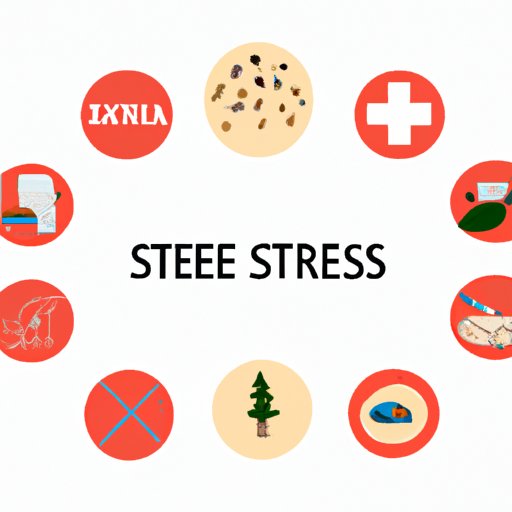
How to Get Rid of Stress Rash: Tips and Remedies
Stress is an inevitable part of life, and while some stress can be beneficial, too much of it can cause a wide range of health problems, including stress rash. This itchy, red skin condition can be frustrating and embarrassing, especially if it appears on visible areas such as the face and neck. Fortunately, there are several ways to manage and prevent stress rash so you can feel comfortable and confident in your own skin. This article will provide helpful tips and guidance for getting rid of stress rash.
Understanding the Causes and Triggers of Stress Rash
Stress rash, also known as stress hives or urticaria, is a skin condition triggered by stress, anxiety, or emotional distress that causes itchy, red hives or welts on the skin. In some cases, stress rash may be caused by certain medications or underlying health conditions. Understanding the causes and triggers of stress rash is the first step in managing and preventing it.
To avoid or minimize exposure to these triggers, it may be helpful to practice stress-management techniques such as deep breathing, yoga, or meditation. Additionally, avoiding known triggers such as certain foods, environmental allergens, or certain skincare products may also help alleviate symptoms.
Developing a Stress Management Plan
Developing a comprehensive stress management plan that addresses both the physical and emotional aspects of stress is essential for managing and preventing stress rash. Prioritizing self-care, setting realistic goals, getting regular exercise, and seeking support from friends, family, or a therapist are powerful steps you can take to reduce stress and improve overall well-being. Seek professional help if you experience chronic stress related to work, relationship issues, or personal life challenges.
Natural Remedies and Treatments for Stress Rash
While prescription medications are often used to treat stress rash, there are also many natural remedies and treatments that can be effective. Home remedies such as cold compresses, oatmeal baths, and essential oils can soothe irritated skin, reduce inflammation, and relieve itching without harsh chemicals or side effects.
Keep in mind that many natural remedies can interact with prescription medications or may not be safe for pregnant or nursing women, children, or those with allergies. Consult with your healthcare provider before using any new treatment.
Maintaining a Healthy Skin Care Routine
Stress rash can be particularly harsh on the skin, so it’s important to take extra care in maintaining healthy skin. Use mild, fragrance-free soap and avoid excessive exfoliation. Keep affected areas cool and dry and avoid tight clothing that can irritate the skin.
Eating a healthy diet, drinking plenty of water, limiting alcohol and caffeine intake, and quitting smoking can also help reduce inflammation and improve skin health overall.
Seeking Medical Attention for Severe or Persistent Stress Rash
If your stress rash is severe, persistent, or accompanied by other symptoms such as fever, difficulty breathing, or swelling of the face, lips, or tongue, you should seek medical attention right away. Your healthcare provider may recommend prescription creams or medication to help alleviate symptoms.
Strategies for Long-Term Stress Reduction and Management
While immediate remedies are effective, it is also important to address the root causes of stress in order to prevent future episodes of stress rash. Long-term stress reduction and management strategies like mindfulness practices, regular exercise, healthy boundaries, and therapy are essential for lasting relief from stress.
Conclusion
Stress rash can be an annoying and uncomfortable condition, but there are many effective remedies and strategies for relief. By taking care of your physical and emotional well-being, seeking support from others, and practicing specific stress-relief techniques, you can manage your symptoms and prevent stress rash from impacting your life. Remember, stress can be managed and overcome, and you are capable of finding relief so don’t hesitate to consult a healthcare professional for assistance.




